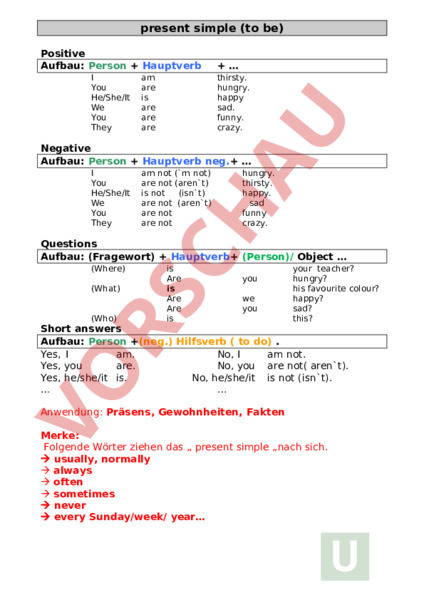Arbeitsblatt: present simple
Material-Details
Zeigt die Anwendung und den Aufbau der grammatikalischen Zeit "present simple" Verb "to be"
Antike Sprachen
Grammatik
7. Schuljahr
1 Seiten
Statistik
202771
668
3
10.08.2022
Autor/in
Sibylle Süess
Land: Schweiz
Registriert vor 2006
Textauszüge aus dem Inhalt:
present simple (to be) Positive Aufbau: Person Hauptverb You He/She/It We You They am are is are are are thirsty. hungry. happy sad. funny. crazy. Negative Aufbau: Person Hauptverb neg. You He/She/It We You They am not (m not) are not (arent) is not (isnt) are not (arent) are not are not hungry. thirsty. happy. sad funny crazy. Questions Aufbau: (Fragewort) Hauptverb (Person)/ Object (Where) (What) (Who) is Are is Are Are is you we you your teacher? hungry? his favourite colour? happy? sad? this? Short answers Aufbau: Person (neg.) Hilfsverb to do) Yes, am. No, am not. Yes, you are. No, you are not( arent). Yes, he/she/it is. No, he/she/it is not (isnt). Anwendung: Präsens, Gewohnheiten, Fakten Merke: Folgende Wörter ziehen das „ present simple „nach sich. usually, normally always often sometimes never every Sunday/week/ year
